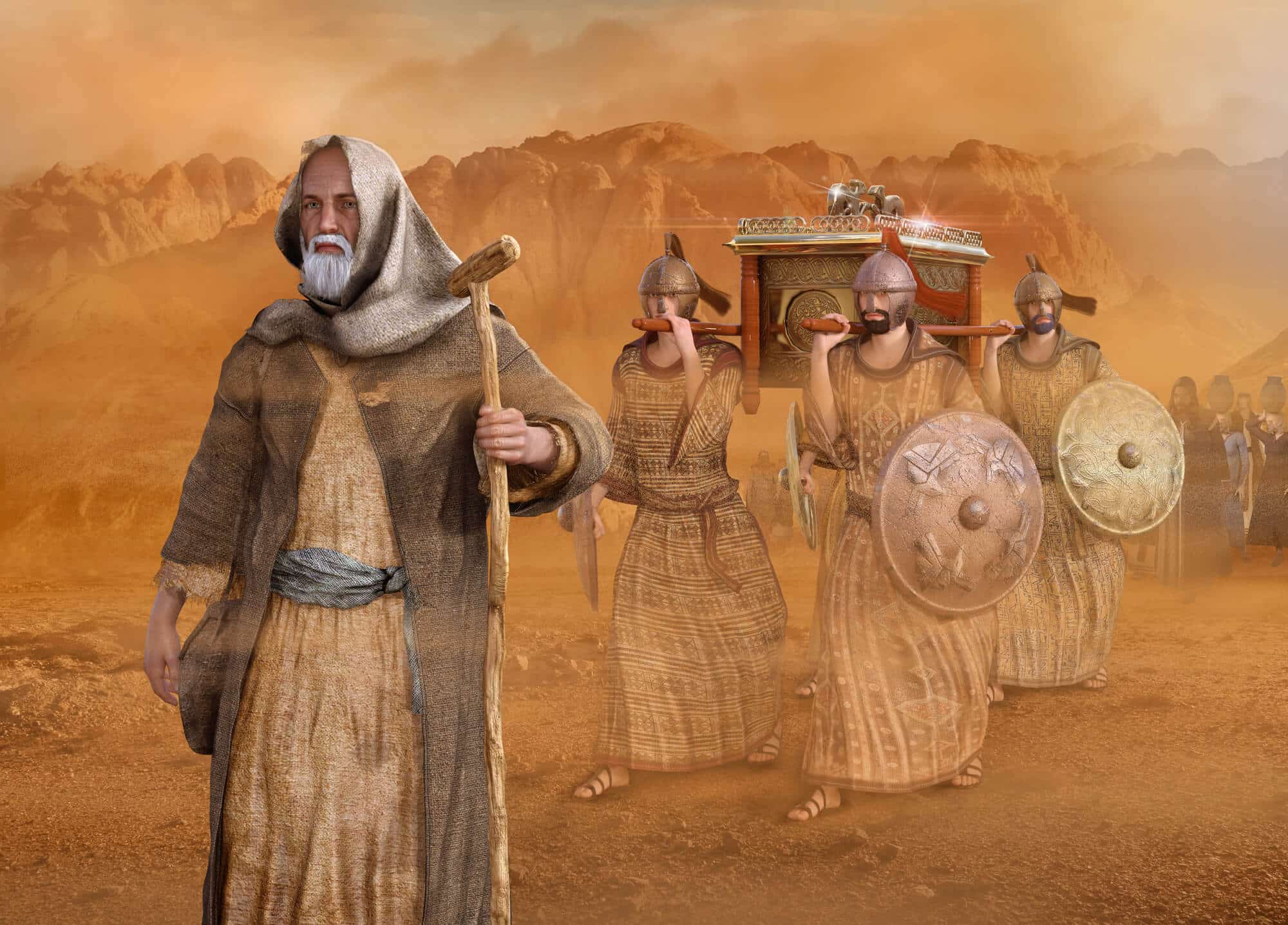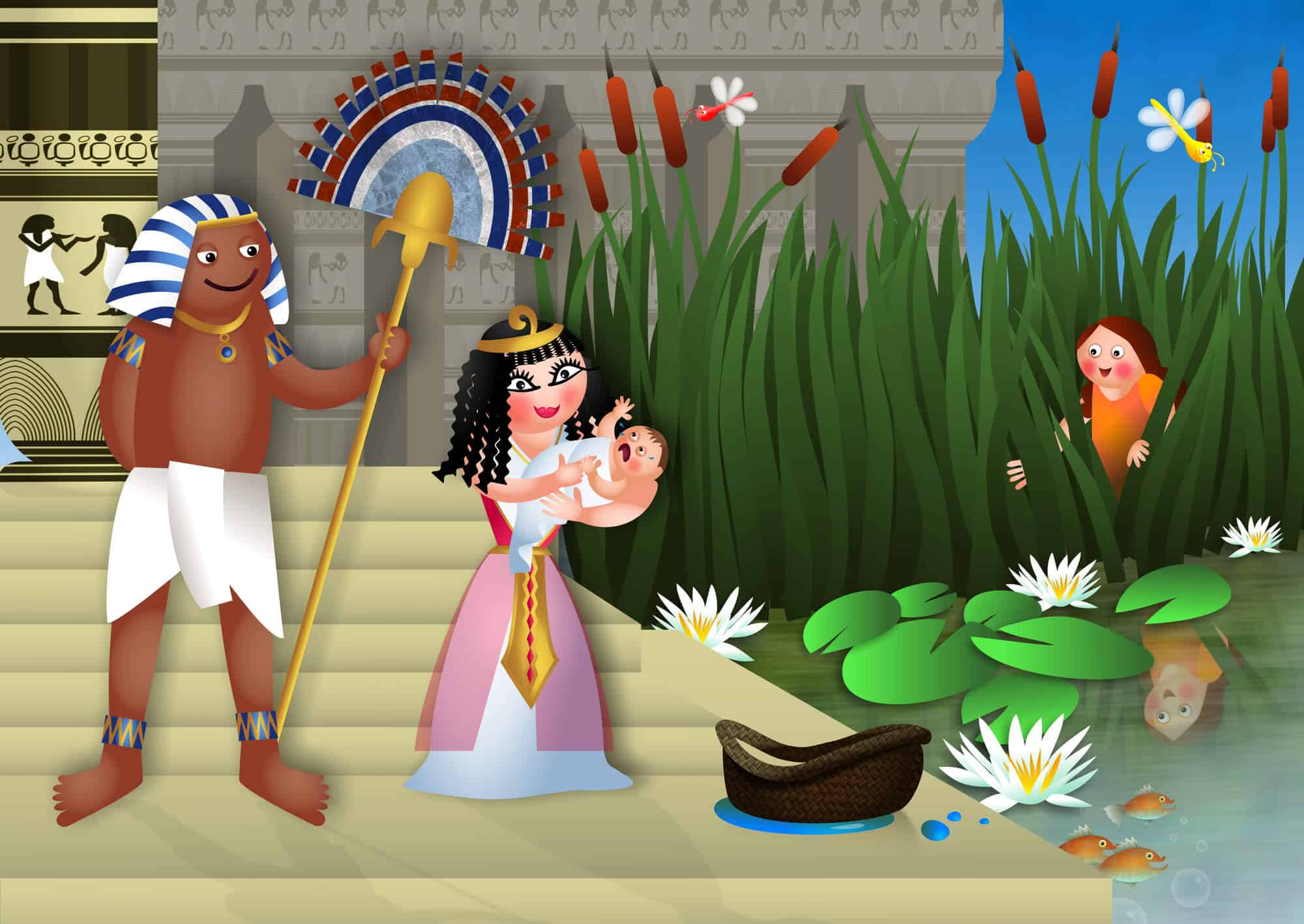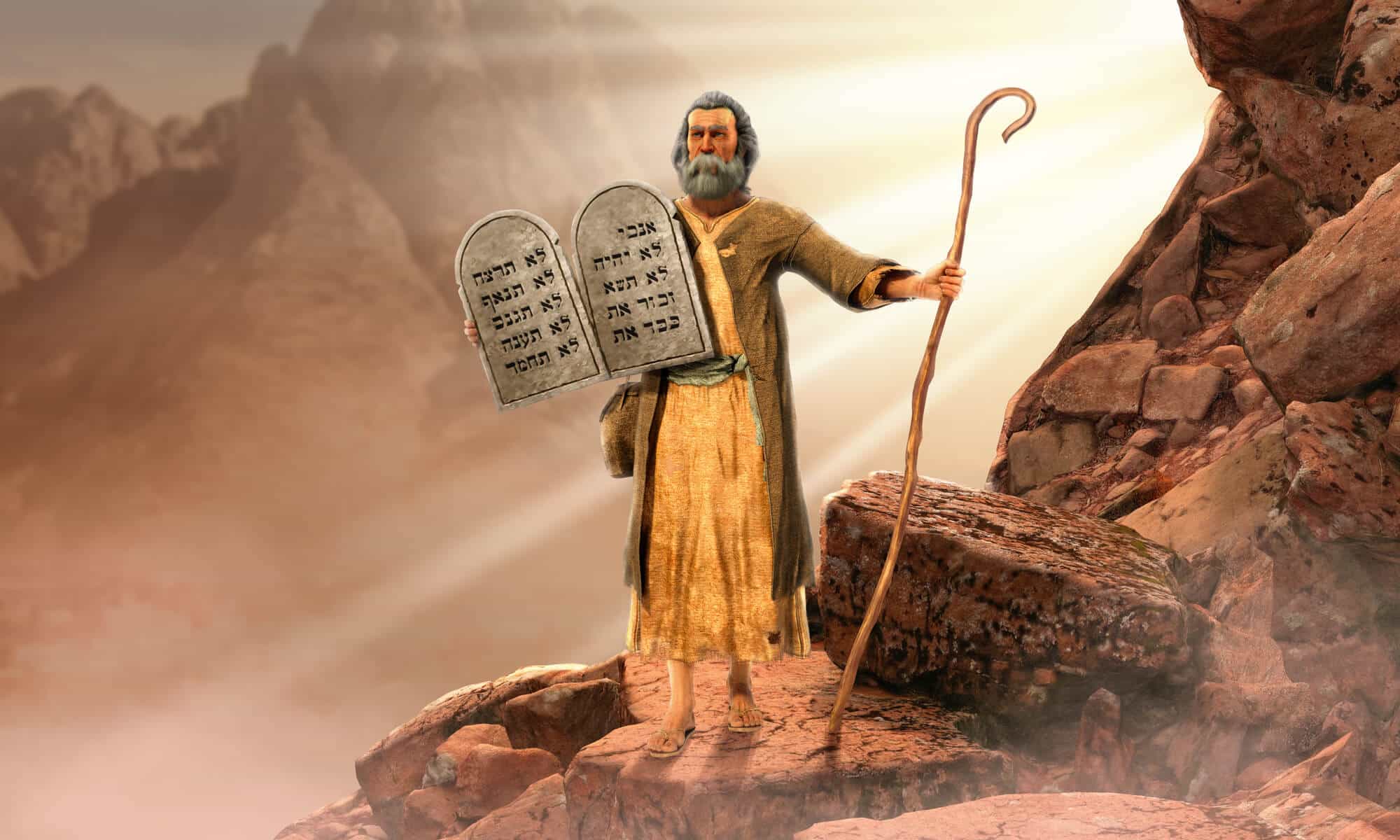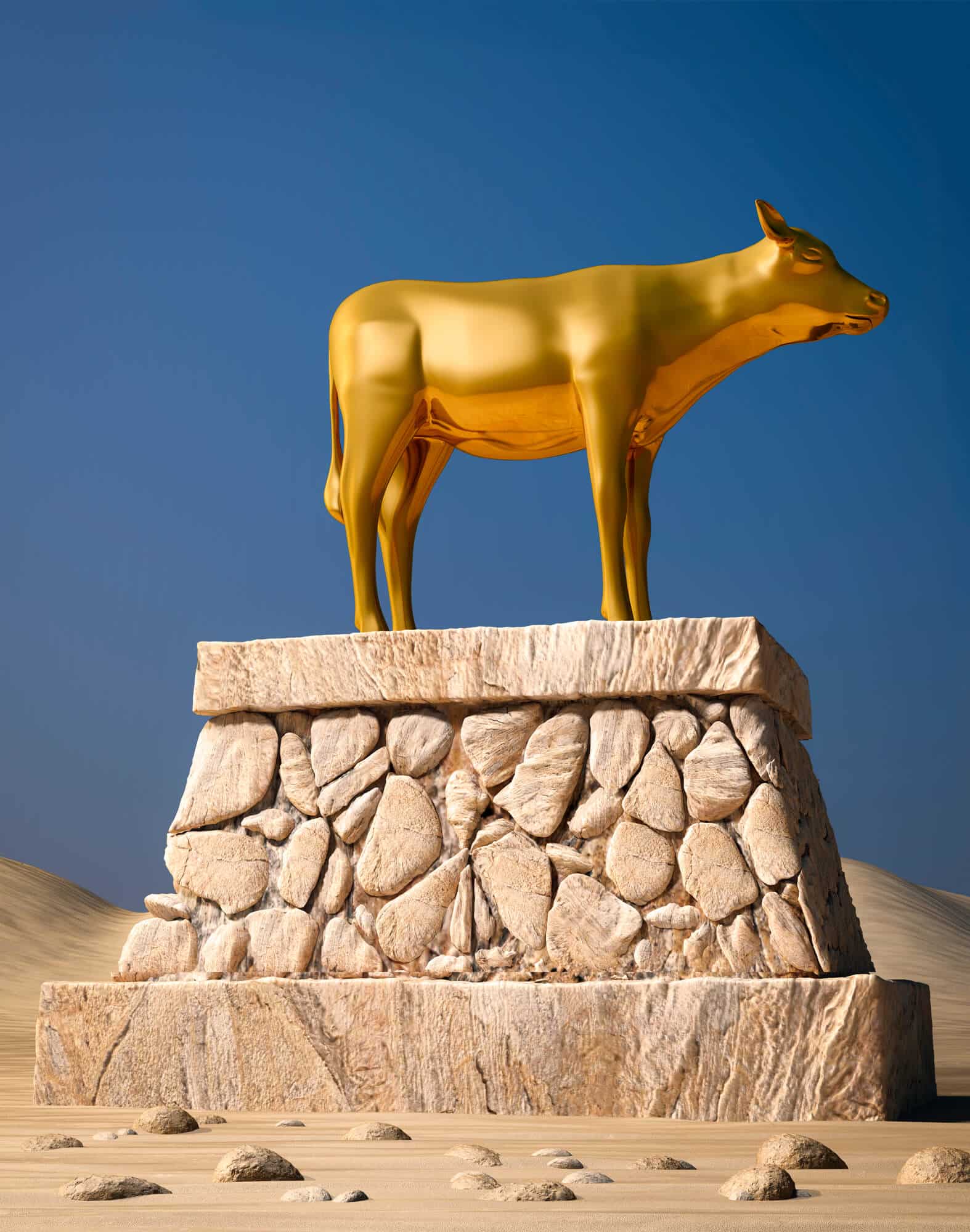The story of the Exodus includes within it a collection of unrelated folk stories, various authors have added more legends to the core, the story itself, which is of priestly origin, contradicts large parts of the Bible that indicate a Canaanite origin
by Prof. Yigal Ben Nun*

Two parallel traditions appear in the Bible on the question of the origin of the Israelites. One states that the origin of the Israelis is from the front of Asia: mainly from Aram. Canaan and Edom. And the second claims that they came from Egypt. The first is autochthonous and created the stories of Jacob. Abraham and the judge-saviors. And the second connected the Sega on leaving Egypt. The wanderings in the desert and the conquest of Canaan by storm. The Canaanite autochthonous approach (that is, the one based on Canaanite origin and Canaanite culture, AB) characterizes the books of Genesis and Judges. In contrast, the Exodus stories cover four books in the Pentateuch and the Book of Joshua. and claim that we are not from here but from another place.
Thanks to the study of the texts in the exodus from Egypt, it is possible to conclude that originally a tradition was created about a group of marginalized people (Hebrews, Khabiru or Levites) who came from Egypt and joined the autochthonous population in Canaan. This tradition was recorded in writing as a short legend and formed an axis on which other stories could be woven without a necessary connection between them. Different authors added common legends to this core of stories and tried to adapt to the central axis. One can name among them a large collection of stories that included the discovery of Moses in the ark with an explanation. The magic acts of the Khartoums of Egypt. Building a golden calf in the desert. And the list is long. These stories are independent of each other. And originally there was no logical or chronological connection between them. This is how a powerful literary work was created that no one had fully imagined in advance.
Why were these stories written and for what purpose? It is clear that the authors did not invent them from their hearts just for the sake of literary fun. This is not art for its own sake. To construct the plots of their stories they used actual knowledge. in the events that their eyes saw and in a variety of stories that their ears heard. Some are real events and some are legends. The more their essays relied on familiar references to their audience, the more reliable and convincing their descriptions were. The stories included a night of facts. Deeds and scenes from which the authors weaved the legends. They knew many cases of starving populations going down from Asia to Egypt during times of drought. And they heard folk tales about freedom from slavery, they heard legends about babies being abandoned across a river and picked up by maids. and loved stories about abandoned children who become princes. They heard gossip about the courts of kings. About the marriage of princesses and the stupidity of kings. And from this information they designed their characters.

The stories of the exodus from Egypt include quite a few miracles and wonders and supernatural events such as the splitting of the sea or food falling from the sky for six days in the desert. Did the authors of these stories believe that the sea could split in two to allow the Israelites to pass through it without getting wet? Is it possible that those authors believed that a stick could turn into a snake and a snake into a stick? The literary level of the texts leaves no doubt that their authors were not naive and mindless people. Rather, they knew how to make literary use of supernatural means and build with great sophistication fascinating and complex stories that have shaken the imagination of humanity to this day.
The story of the Exodus consists of many unrelated anecdotes
The original story of the exodus from Egypt is not similar to the synchronic saga in the text of the Masora. The saga was not written from beginning to end by one author. It consists of many anecdotes. written at different times. by many authors. Mostly without a harmonious connection between them. Over time, authors added new stories to the core of the exodus story. But the resulting contradictions did not bother the editors. in its earlier versions. The exodus story did not include traditions that were added to it over time. such as the tradition of wandering in the desert and the giving of the Torah. eating manna The tradition of the Passover sacrifice and the holiday of unleavened bread. and issues such as first births. The children of Israel walked in the sea as on land and many others. These secondary stories were created separately and added to the original core.
For example "Song of the Sea". One of the oldest in the Bible. It did not include the splitting of the sea and the children of Israel walking through it. but only the sinking of the Egyptian army in the Red Sea. with the aim of harmonizing the stories. A priestly editor later added a concluding sentence. in prose To the poetic text: "For Pharaoh's horse came in his chariot and his horsemen in the sea, and the Lord caused the waters of the sea to rest upon them, and the children of Israel walked on dry land in the midst of the sea" (Exodus 15:19).
The authors of the stories in the books of Exodus and Madbar did not mean it. In my opinion. to report on events that occurred in reality. At first glance, it is difficult for us to understand what goal the authors were striving for in each of the stories. Their stories are not necessarily related to each other. For example the plagues of Egypt and the cycle of complaints of the people against their leaders. The fact that some of the stories are based on a familiar literary model. such as the cycle. Alluding to the fact that this is not a historical reality but rather a prototype of an event that can exist in different variations in any place and in any period.

If we take for example the stories of the complaints of the Israelites in the desert it seems that their issues were hunger. thirst. lack of meat Fear of neighboring populations. The arrogance of the leadership and the arrogance of the priests. These subjects are more suitable for an urban society than for nomads in the desert. The author in the days of the monarchy or after it preferred to plant his stories in the old days and in distant and uncharacteristic places. like talking Or on mostly fictitious websites: According to Freedom. bile. Graves of Lust. China desert. Paran Desert. Pads and more. The cycle turns the stories into a literary convention that describes a common state of affairs familiar to the reader.
Yet. It is difficult for the modern person to understand subtleties related to the way of thinking of a person in an ancient society and to decipher the depth of the meaning of each individual story. The mental world of the authors of the biblical stories is not always clear to us. And many situations in their stories will remain unknown. hidden from us.
With slaves who run away or an organized army that discriminates against Egypt?
The story of the exodus from Egypt had versions that contradicted each other. It is not even clear if the Israelites were expelled from Egypt. Run away from her. They left it with the king's consent or even threatened the Egyptian government with military force. One version in the book of Exodus states that the Israelites. that produced whites as slaves. In total, they asked the king of Egypt for a three-day leave to hold a ritual ceremony for their god. according to them. If they do not sacrifice to God in the desert, he will beat them to death: "And they will say: The God of the Hebrews is called upon us. "We will walk three days in the desert and sacrifice ourselves to the Lord our God, lest we be hurt by word or sword" (5:3). Another version claims that the Israelites under the leadership of Moses fled from Egypt without permission: "And it was told to the king of Egypt that the people had fled [] and the Egyptians chased after them and overtook them encamped on the sea" (14:5-6). A third version claims that the children of Israel did not flee but were expelled: "And the children of Israel went from Rameses to Sukkot [] because they had been expelled from Egypt" (12:38-39).
The most surprising version denies both the escape and the deportation and claims that the Israelites were armed soldiers. Prepared as an organized army that even employed mercenaries: "And the children of Israel went from Rameses to Sukkot, about six hundred thousand men on foot, and even an Arab (that is, a swordsman) went up with them The children of Israel went up from the land of Egypt" (12:37-38) . This army also dealt a blow to the Egyptian army and its chariots that sank in the Red Sea.
The character of Moshe was built on the basis of three or four figures of heroes that the author had heard of: Biya. Censor Sargon and more. They were combined together even if they contradicted each other. The common narrative model of the birth of an ancestor. Abraham's example. Tells about a woman coming in the days who is foretold by God that she will give birth to a son despite her barrenness. The birth of Moses belongs to a different narrative model, such as the story of the birth of Sargon, King of Akkad or of Sargon II, King of Assyria. who were abandoned as babies in a box floating on a river. This story is modeled after a familiar archetype in fairy tales about common people who become great leaders.
In some texts dedicated to the Exodus, Moses' part is missing. Although this was requested. Moses. The hero of the story of liberation from slavery. He did not beget descendants from whom the Israelites were created. For example the sons of Jacob or the descendants of Abraham. It can be assumed that the earliest version of the Exodus tradition did not include Moses. In these texts the exodus is attributed to God and not to Moses. And it seems that the two figures compete with each other on the question of who brought the Israelites out of Egypt.
In the book in the priestly wilderness, it was not Moses who brought them out of Egypt, but God's angel: "And our fathers came down from Egypt, and we dwelt in Egypt many days. And they shepherded us from Egypt and our fathers. And we cried out to Jehovah, and his voice was heard, and he sent an angel, and we came out of Egypt" (2015-16). also. Many psalms describing the exodus from Egypt ignore Moses and attribute the exodus to God (Psalms 44. 45. 46. 18. 15 and more).

Sinai is almost never mentioned outside of the Pentateuch, except for Nehemiah. The other prophets ignored the story
After the inclusion of Moses as the hero of the exodus from Egypt, priestly editors added Aaron the Jew as a counterweight to the figure of Moses the Israelite. The character of Jacob is that of a large family with parents. brother. women and children He has feelings. Loves and disappointments. compared to him. Moshe is depicted as a schematic figure that was artificially invented for the purpose of a story in which God was the hero. It is worth noting that "Chinese" is not mentioned in any book outside of the Pentateuch. Except once in the book of Nehemiah. And not in external addresses. "Chinese" was sometimes inserted by editors for the sake of harmonization. Therefore, in my opinion, this is a fictitious name that has no point in looking for a geographic location. In the imagination of the authors of the stories in the Bible, they placed Sinai not on the peninsula between Israel and Egypt but in northern Arabia.
The Exodus tradition is absent from almost all the books of the prophets. It can be found as an agreed mention of a symbolic event only in the writings of Amos. Hosea Micah and Jeremiah. In the Persian period, this tradition lost its importance in favor of the autochthonous tradition. The books of Ezra. Nehemiah and the Chronicles written in those days ignored the Exodus and emphasized the tradition of the ancestors. The Exodus did not concern the prophets Haggai either. Zechariah and Malachi. Even the Hebrew literature from the Greco-Roman period found in the Qumran caves does not refer to the Exodus.
Many texts in the Bible are proof of the disregard of the Exodus tradition from the tradition of the ancestors. Equally ignored are the stories of the ancestors from the Exodus. Neither do the judge-saviors mention the Exodus. Although the tradition of the judges is autochthonous. There is no mention of the fathers of the nation in it and the other traditions ignore it.
An example of ignoring the tradition of the exodus from Egypt from the autochthonous ancestors can be found in the description of the land as a place unknown to the reader: "I came to rescue him from Egypt and to bring him up from that land to a good and spacious land. To a land flowing with milk and honey" (Exodus 3:7-8). This description does not recognize the promise given to the fathers in Canaan. It is suitable to be said only to people who have never They or their ancestors. were not in Canaan. That is why it had to be described to them as an unknown land: "And they brought us to this place and they gave us this land, a land flowing with milk and honey" (Deuteronomy 26:6-9).
Israel and Judah were a Canaanite social stratum that took shape as a new ethnic identity
The anthropological-archaeological research on the origin of the Israelites paints a situation closer to the world of the ancestors in Canaan than to the violent conquest of the Israelites under the leadership of Joshua and the destruction of the local population. Before the researchers is the question: How did the relationship between the Israelites from the days of the monarchy and their ancestors in Canaan come about? Several estimates lead us to the conclusion that the first Israelites were autochthonous inhabitants who formed as a separate group within the population of Canaan as a result of a demographic mutation in the Canaanite society and due to the migration of impoverished villagers to the mountain areas. According to this script. The population of the central mountain and the mountains of the eastern Transjordan. From there grew the kingdoms of Israel and Judah. is nothing more than a Canaanite social stratum that took shape as a new ethnic identity. This picture of a rural population next to the cities of Canaan corresponds to the stories of the ancestors and the legends of the saviors in the book of Judges. As they were preserved in the memory of the Israelis during the days of the monarchy.
At the end of the day. It can be said that the Israelites are Canaanites who settled outside the Canaanite royal cities. They were joined by Hessian nomads from the Nile Delta and a group of Levites who came from Egypt to Edom and Midian. They brought with them a new god. Jehovah. Commenting on Edom for the Israelites in Canaan whose worship is connected to God. husband and visa The original Canaanites dwindled at the expense of the rural population. Until finally the Canaanites were gradually assimilated into the Israelites during the royal period. The many biblical texts that warn the Israelites against the evil influence of the seven peoples of Canaan reflect an intermediate situation. where a scattered Canaanite minority still lives among an Israeli majority.
More of the topic in Hayadan:
- So who are we really?!
- Exodus - invented narrative
- The place and time in which anti-Semitism was born and the connection to the Exodus * An interview with a researcher who published an article about it
- Researchers claim: the Jews were a pharaonic tribe that was expelled from Egypt
- Where are all our ancestors / Dr. Yechiam Sorek
- Dr. Yigal Ben-Nun, the Institute for Higher Studies, Paris Ecole Pratique des Hautes Etudes and a research fellow at the Cohen Institute for the History and Philosophy of Science and Ideas at Tel Aviv University.

7 תגובות
It's funny to me that there are people who still believe in the stories of the Torah.
It's just a shame that people die because of these primitive beliefs.
Prof. Ben Nun - well done for the integrity to say that the king is naked....
And to those who train in the horror stories of the Torah - we do not live in the seventh century...
Well... so the article has words like 'autochthonous' and 'harmonization'. Does not help to praise the article. There is a chronological connection between the stories. Abraham arrived in the land - Joseph went down to Egypt - several generations passed and here Moses is adopted by Pharaoh's daughter - Pharaoh develops hatred for the Hebrews (yes - those who came in Joseph's generation) and imposes harsh decrees on them - the people of Israel under the leadership of Moses leave Egypt without permission - the Egyptians pursue them and drown them - The people of Israel are on their way to Israel. What is not chronological here? No one in history has thought that the Habibru or the Hyksos were not from Canaan in the past. The whole separation between the people who came to Egypt and the people who left Egypt seems to me like forcing you to create an article. There is no chronological problem with the stories and they are not just anecdotal. Whether they really happened or not is a completely different matter.
I expect from a newspaper that deals with science to publish serious scientific articles, not a poor-level recitation of Finkelsteinian claims at best, or straw and gabba to defend Hagni to Mukuni at worst.
To understand the nature of Vanuno's (Ben Nun) claims, you should surf the Internet. Every other word is simply unnecessary.
In the state of Israel, which is changing its religion, these are words of heresy.
Pharaoh Imhotep son of Ramses II from the exodus from Egypt in Pharaoh's stele says - Israel was destroyed and he means the land of Canaan. Hence the Israelites were in Canaan during the exodus from Egypt and he exterminated them as befits any pharaoh dictator
pleasure!
Dear Mr. Yigal
You forgot to mention that apart from your beautiful writing, all your claims stood. Only according to Karaic Judaism.
According to every other major current in Judaism, the exclusive meaning of the oral Torah is the hidden Torah, i.e. the Talmud.
And as a Talmud researcher, all of your claims bloom in the air without any effort to break through them, just by trying to understand what you tried to write it can be seen that your article is intended for people with a low level of thinking.
In my opinion, the science website sins when it tries to be in-depth, when it tries to investigate and examine very important issues.
Since the superficiality and the lack of understanding of the authors of the articles about the subjects the authors write about, it is pulsating and exasperating, and even provoking contempt in an unusual way
How stupid can a person be??
Besides the writing called the Torah, which is part of the Tanakh that the whole world knows and ancient writings from which have been found and are still found, there are also many traditions among the Gentiles around the world about the story of the exodus from Egypt and not to mention the very many archaeological findings.
You are probably another one of those who think that the people of Israel need one way or another confirmation of their history and the amazing relationship with the Creator of the world.
He who is satisfied and does not believe is a skeptic in everything in his life, he has no faith in relationships, he has no faith in his workplace, he has no faith in his children and certainly not in his own good.
Pity you!!!
And if you are not Jewish, go to hell!!!